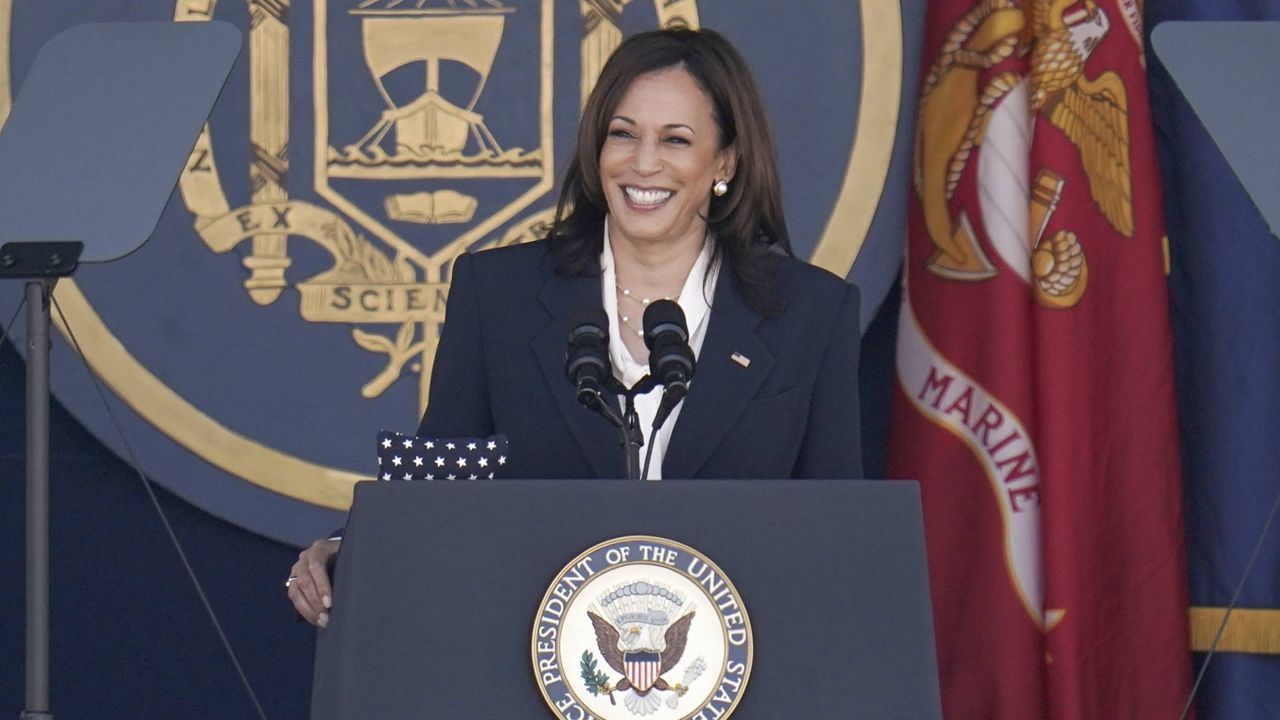Vice President Kamala Harris announced Thursday that the Democratic National Committee will invest $25 million to expand voting rights programs across the country in advance of the 2022 midterm elections.
“This campaign is grounded in the firm belief that everyone’s vote matters. That your vote matters,” Harris said in a speech at Howard University, her alma mater and a historically Black college. “We want to help to make sure your vote is counted, and that is because our democracy is strongest when everyone participates.”
Harris’s remarks Thursday come as several GOP-led states have sought to enact a string of new and increasingly restrictive voting legislation, seizing on former President Donald Trump’s false claims of “voter fraud” in the 2020 election in an attempt to justify the new restrictions.
DNC Chair Jaime Harrison also delievered brief remarks Thursday, where she sought to highlight the Supreme Court’s recent decision to uphold two controversial Arizona voting laws. The court's 6-3 vote came as a major blow to Democrats, who had argued tht the laws were discriminatory and violated the Voting Rights Act.
“Last week, the Supreme Court set back voting rights by over 50 years,” Harrison said. “The Voting Rights Act was passed to prevent this type of nonsense,” she continued. “Our leaders then knew that racist voter suppression tactics often appear neutral, but it's important to consider unequal impact on voters of color.”
Thursday’s speech from Harris, who has been tasked with spearheading the White House’s initiatives on voting rights, is slated to be the first in a series of events from her on the issue. On Thursday, aides were also discussing a potential Biden speech “as early as next week,” according to two White House officials who spoke on condition of anonymity because they were not authorized to publicly discuss internal deliberations.
Biden and his team have repeatedly promised a major push on voting rights after Senate Republicans blocked a sweeping election reform bill last month. The president last week told reporters that he planned on “speaking extensively” on voting rights and that he would be “going on the road on this issue.”
So far, a major speech has not happened and a trip has not occurred, leading to rising frustration from those in his own party who view the GOP crackdown on voting rights as an existential threat to both Democrats and democracy.
That pressure has only mounted after the Supreme Court decision, and Biden has brought in outside advocates for meetings at the White House and has consulted advisers on the best strategy for combating restrictive new laws.
“Folks, it is never too early to defend your rights,” Harris said Thursday. “With these new laws that have been passed, or they’re trying to, we have to start now to finish strong.”
Still, some Democrats and voting rights activists believe that the White House did not start nearly soon enough – including Rep. Jamaal Bowman, D-N.Y., who said in a recent interview that Biden “needs to lead out front and be very vocal on this issue.”
Democrats on Capitol Hill have already tried to respond with a sweeping voting and elections bill that Senate Republicans united to block. Most Republicans similarly dismissed a separate bill, the John Lewis Voting Rights Advancement Act, which would restore sections of the Voting Rights Act that the Supreme Court previously weakened.
Those roadblocks have increased focus on the Senate filibuster, which, if left in place, would seem to provide insurmountable opposition to the pair of sweeping voting rights reform acts currently in Congress. Republicans have been unanimous in their opposition, and it would take the elimination or at least modification of the filibuster for the bills to have a chance at passage. Moderate Democrats like Sen. Joe Manchin of West Virginia and Sen. Kyrsten Sinema of Arizona so far have expressed reluctance to change the Senate tradition.
Still, Harris stressed Thursday that the issue of voting rights goes beyond partisanship.
“I want to make clear that this is about all voters,” she told the crowd at Howard University. “It doesn’t matter to us if you are a Democrat or not. We want to help you vote, and we want to help make sure your vote is counted. Why? Well, because our democracy is strongest when everyone participates, and it is weaker when people are left out.”



